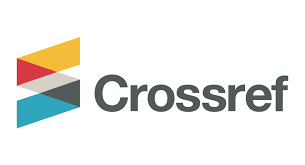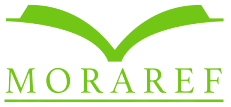Korupsi dalam Perspektif Teori Institusional: Antara Legitimasi Formal dan Disfungsi Struktural
 Abstract views: 525
,
Abstract views: 525
,
 PDF downloads: 392
PDF downloads: 392
Abstract
Korupsi merupakan salah satu persoalan utama yang menghambat tata kelola pemerintahan yang bersih dan berintegritas. Masyarakat Indonesia semakin sadar dalam menilai, memberikan saran melalui aspirasi mereka kepada pemerintah. Tetapi pada kenyataannya korupsi masih sangat massif terjadi dan tindakan yang dilakukan sudah merugikan negara, kepastian hukum bagi pelanggar korupsi tidak menimbulkan efek jera, hal ini bertentang dengan makna dari hukum itu sendiri. Penelitian ini bertujuan untuk menganalisis praktik korupsi dalam kerangka teori institusional, dengan menyoroti bagaimana struktur formal organisasi pemerintahan sering kali hanya berfungsi secara simbolik tanpa menginternalisasi nilai-nilai integritas secara substantif. Penelitian ini menggunakan pendekatan kualitatif-deskriptif dengan studi literatur dan analisis regulasi anti-korupsi di Indonesia. Hasil penelitian menunjukkan bahwa korupsi tetap bertahan karena adanya legitimasi formal yang dibangun secara seremonial melalui regulasi dan kebijakan, namun tidak diimbangi oleh komitmen internal. Temuan ini mendukung pandangan John W. Meyer bahwa organisasi dapat mempertahankan eksistensinya melalui adaptasi terhadap norma institusional, tanpa harus meningkatkan efisiensi atau kejujuran secara nyata.
Downloads
Copyright (c) 2025 As-Shahifah : Journal of Constitutional Law and Governance

This work is licensed under a Creative Commons Attribution-ShareAlike 4.0 International License.
Publishing your paper with As-Shahifah : Journal of Constitutional Law and Governance means that the author or authors retain the copyright in the paper. As-Shahifah granted an exclusive non commercial reuse license by the author(s), but the author(s) are able to put the paper onto a website, distribute it to colleagues, give it to students, use it in your thesis etc, so long as the use is not directed at commercial advantage or toward private monetary gain. The author(s) can reuse the figures and tables and other information contained in their paper published by As-Shahifah in future papers or work without having to ask anyone for permission, provided that the figures, tables or other information that is included in the new paper or work properly references the published paper as the source of the figures, tables or other information, and the new paper or work is not direct at private monetary gain or commercial advantage.
As-Shahifah journal provides immediate open access to its content on the principle that making research freely available to the public supports a greater global exchange of knowledge. This journal is licensed under a Creative Commons Attribution-ShareAlike 4.0.This license lets others remix, tweak, and build upon your work non-commercially, and although their new works must also acknowledge & be non-commercial, they don’t have to license their derivative works on the same terms.
As-Shahifah journal Open Access articles are distributed under this Creative Commons Attribution-ShareAlike 4.0 International License (CC BY-SA). Articles can be read and shared for noncommercial purposes under the following conditions:
- BY: Attribution must be given to the original source (Attribution)
- SA: If you remix, transform, or build upon the material, you must distribute your contributions under the same license as the original.








